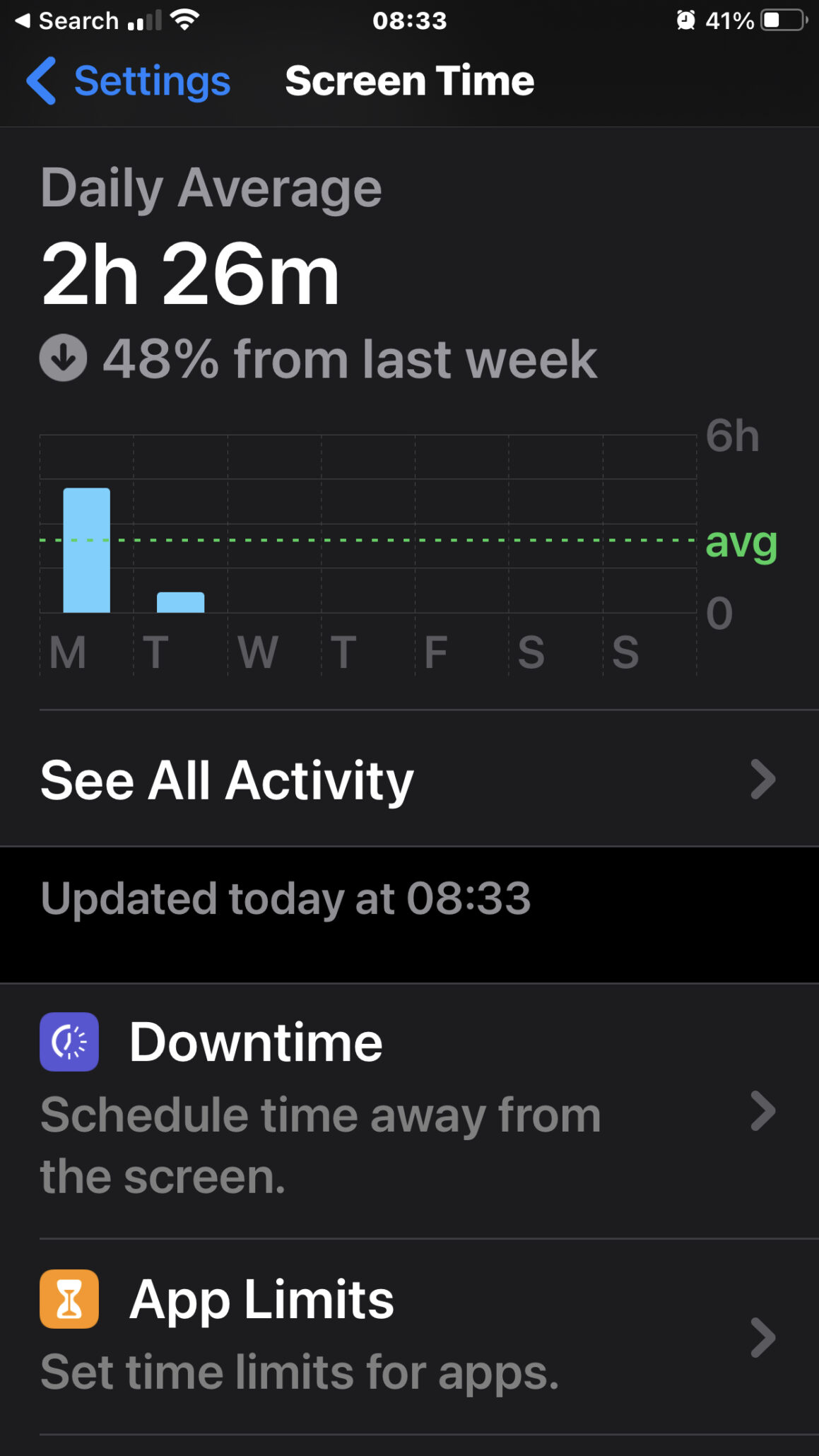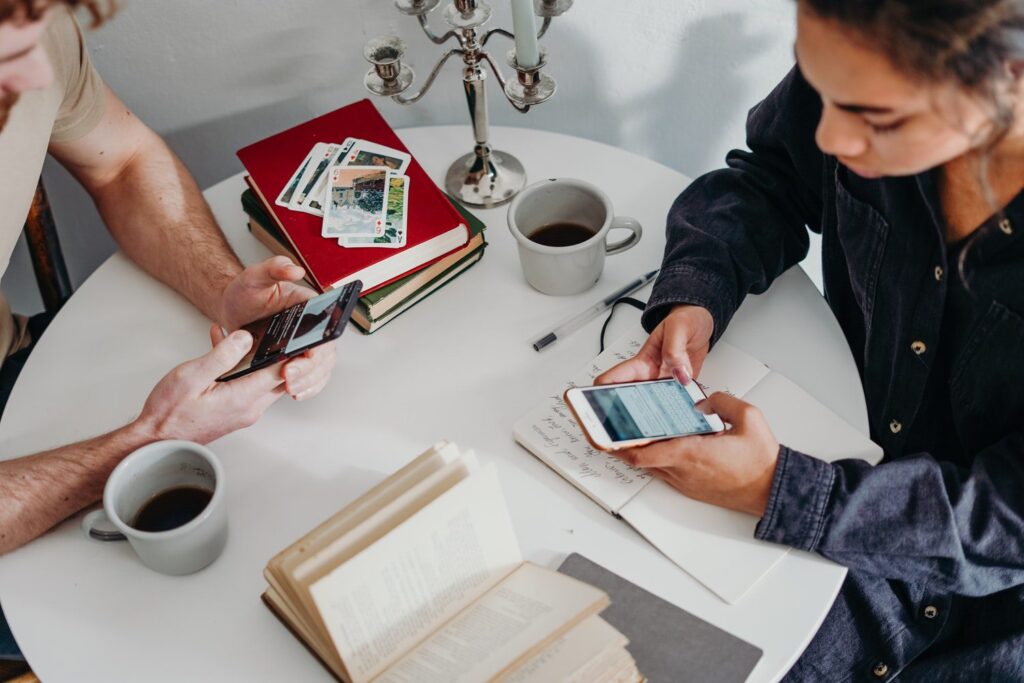In the last 12 months, we have spent a lot more of our time at home. The global pandemic has caused us to stay at home more, which has subsequently resulted in us using technology more. With our modern technology, we now have a world of information at our fingertips, literally. And while this can make our lives easier, it can also become a source of stress and an unhealthy addiction so how can we manage our technology habit?
How Dependent Are We On Technology?
It seems that we are very dependent on the technology that we have access to. Think about it, you go to sleep with your phone nearby, you wake up and check your message or emails, we log onto our social media accounts with far too much regularity. Some homes even have smart technology or systems that will turn lights, heating or the radio on. Potentially without realising, technology is a major part of your life.
Some statistics show that adults spend on average 4 hours a day online and approximately 58% of adults state that most of their daily activities heavily rely on the use of technology. With 1 in 5 adults not being more than a few feet away from an internet device, it isn’t surprising that when there is no internet access people can begin to feel anxious and stressed. The average person will only last around 7 hours without the internet before these feelings begin.
How Can Technology Help?
The way that technology has improved over the years is incredible. Older generations still are shocked at the things that can be achieved using technology today. Some manual labour/production lines have been completely  replaced by electronic computers, smart speakers can control lights in our homes, watches can help us keep track of our physical exercise. All of these are examples of how technology can aid us in our lives and make activities easier. It is important to remember that technology does have many positives and it is how we use it (or how often we use it) that can become the problem.
replaced by electronic computers, smart speakers can control lights in our homes, watches can help us keep track of our physical exercise. All of these are examples of how technology can aid us in our lives and make activities easier. It is important to remember that technology does have many positives and it is how we use it (or how often we use it) that can become the problem.
Creating A Disconnect
This is a common problem when it comes to technology habits and overuse. You could be out at a restaurant and look around and see a whole family where the parents are on their phones, and children are on tablets/phones, no one is talking to each other and no one is connecting. This is seen in so many different situations every day and is a prime example of the disconnect that happens when there are bad technology habits present. Heavily relying on technology can result in a loss of human interaction skills.
Communicating, talking and interacting with you children is vital for their mental health, along with development. Of course young people don’t always want to open up to their parents but its important that they speak with someone. We have prepared a post on young people talking about mental health.
Tips For Improving Your Technology Habit
Turn off your notifications
Many of us set our phones/devices to make a noise or vibrate when there is a new notification from an app. Turning these off means you will be unaware of when something new has popped up and will result in fewer distractions. You also might want to think about what apps can send you notifications. In your settings, you can choose what apps you receive notifications from and this may help reduce your feelings of stress or anxiety.
Set expectations
It is absolutely within your right to choose when you will be checking emails and messages during your own free time. If you are not going to be checking your messages during the day, or emails over the weekend, make sure the relevant people are aware of this. It is easier to disconnect from our technology if we are not worried about people trying to contact us.
Connect face to face
Although we can use technology to connect with people, and this has been the only way many of us have been able to connect with people during Covid, it is vital that when you are with people in person you unplug from your device. Spending time with people face to face is important for our emotional well-being. When you are spending time with people, try to have your phone out of sight so that you can be present in the moment.
Reflect on your social media use
This is particularly important as social media isn’t always true. You may spend time looking online at peoples “perfect and glamorous lives” but this is rarely true. Research has shown that social media use is linked to feelings of anxiety and depression, and this comes from aimless scrolling through profiles and news feeds. A way to use your social media more positively would be to comment on other peoples posts, share your ideas or share small business pages.
If your accounts are causing you severe stress and anxiety, think about taking a short break or leaving those platforms altogether.
Take a break
It would be unrealistic to just say you are going to try to cut down on your technology use, as we are so heavily reliant on it. But, if you tried to find a quiet moment each day where you unplugged from any devices, you may find that you start to enjoy those moments of peace and calm. It might not be easy at first, but as time goes on, you may be able to extend those times or their frequency. Is social media impacting your mental health ?
All clinicians at Oxford CBT are qualified in Cognitive Behavioural Therapy, some are also Psychologists. Offering evidence-based interventions and support for a range of issues for both young people and adults. If you would like to book an appointment you can do so on our online booking portal. If you have a question please get in touch via our online contact form or call us on 01865 920077.



